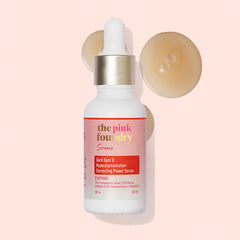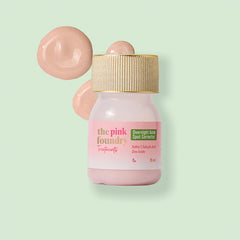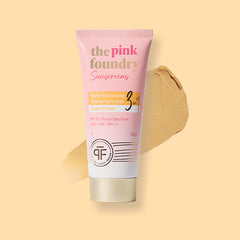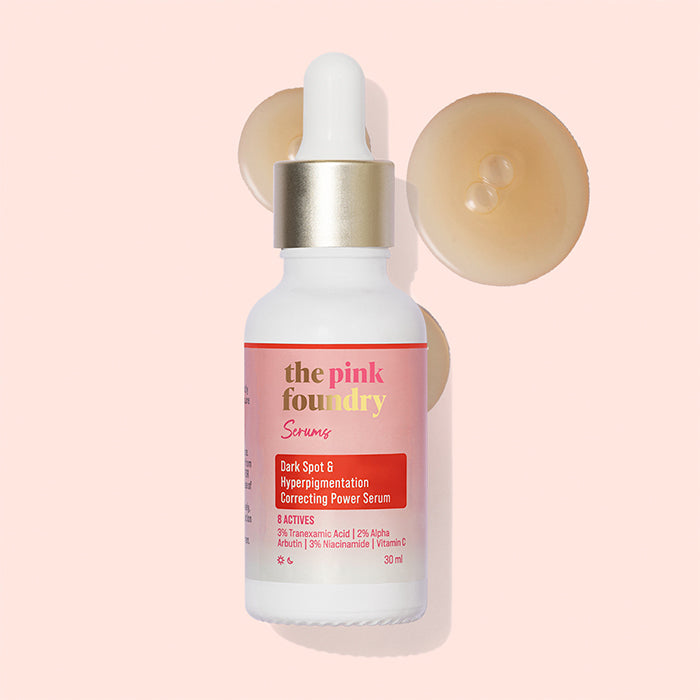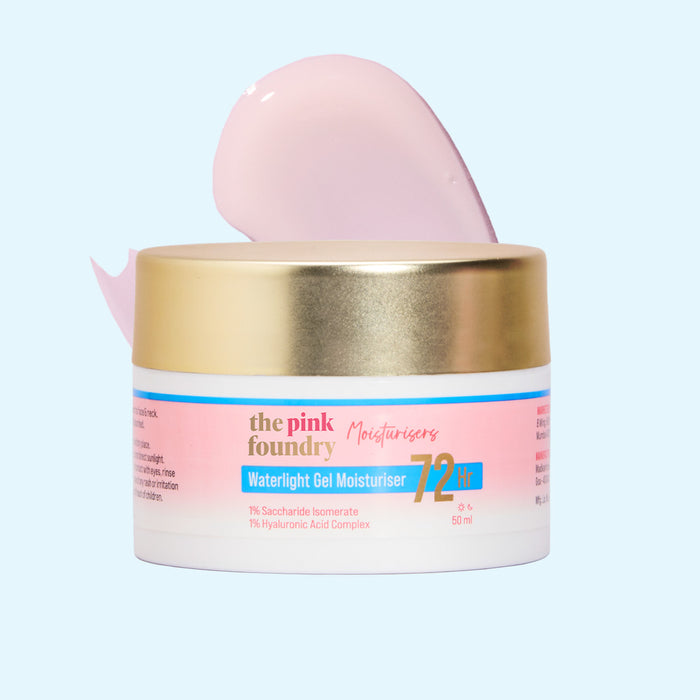Which vitamin is good for skin and how to pick the right one for you
Vitamins are the most enriching nutrient for your body. The extent of benefits they provide the body with are numerous. Various vitamins boost different parts of your body; hence, in this article, we will give you comprehensive details on which vitamin is useful for your skin and how you can add it to your daily skincare routine.
How are different vitamins useful for the skin?
Thanks to its fruits, nature is filled with various vitamins and nutrients, many of which have excellent skin-enhancing properties. Let us take a quick look at the advantages of the different vitamins:
|
Sl.No |
Vitamins |
Skin Benefits |
|
1 |
A |
Skin cell growth and repair |
|
2 |
C |
Arrests premature ageing |
|
3 |
E |
Safeguard the skin from getting damaged. |
|
4 |
D |
Protect the skin from inflammation and infection like acne, eczema, etc. |
|
5 |
K |
Resists discolouration and dark circles |
|
6 |
B7 |
Aids in maintaining the skin barrier |
|
7 |
B3 |
Help in curing hyperpigmentation |
|
8 |
B5 |
Nourishes and hydrates the skin |
Vitamin A: Benefits for skin and how to add to your skincare routine
Four main vitamins have multiple contributions towards promoting good skin. The first of the four is Vitamin A, known for its antioxidant properties. The major component of this vitamin is Retinoid, which has a wide range of uses. Some of the major benefits offered are,
- It accelerates elastin and collagen production, which helps reduce the appearance of wrinkles and fine lines.
- Hyperpigmentation, discolouration, and spotting of the skin caused mainly by sun rays can be cured by Vitamin A
- The exfoliating property of this vitamin helps it to eliminate dead skin cells. This, in turn, helps effectively deal with acne and clogged pores.
- It can nourish the skin by instigating fibroblasts, which help it be youthful, plumped and radiating.
The Vitamin A serum should be used for two to three drops at night. You can apply this serum after cleansing your face and applying the moisturiser. Our body begins its healing duties once we are asleep; hence, using the serum at night will help enhance the healing process.
Vitamin C: Benefits for skin and how to add to your skincare routine
The star ingredient of a maximum self-care regime is Vitamin C. It is loaded with skin-enriching properties. It is photoprotective and antioxidant aids collagen production, etc. Some of its major benefits are
- This vitamin promotes collagen synthesis and can prevent the formation of free radicals. These combined properties enable it to reduce the appearance of fine lines and wrinkles and effectively smooth out the skin, thus arresting premature ageing.
- A topical product infused with vitamin C, like Dark Spot & Hyperpigmentation Correcting Power Serum, will help deal with tanning, discolouration, dark spots, hyperpigmentation, etc., due to its antioxidant properties.
- Dry skin is one of the major skin concerns; hence, Vitamin C is the best answer to the popular question of which vitamin is good for dry skin. The ascorbic acid helps retain the moisture within the skin, which helps keep the skin appreciably hydrated.
- The ability to aid in producing collagen also contributes to healing wounds and skin cell damage.
Vitamin C can be used at any time of the day, but it is essential for the best results at night. In the morning, you can use sunscreen integrated with Vitamin C. You can opt for Vitamin C serum or topical options with 10-20% L-ascorbic acid for nocturnal usage. Ensure you have double-cleansed your face before the application and used a moisturiser afterwards.
Vitamin E: Benefits for skin and how to add to your skincare routine
The alpha-tocopherol of Vitamin E is the most active form, providing the vitamin with antioxidant properties. Some of its benefits are,
- The Vitamin E oil offers wonderful hydrating benefits to your lips. Hence, if you suffer from dry and flaky lips, use lip balms with Vitamin E oil.
- It helps retain the skin's moisture and nourishes it from within.
- Vitamin E is photoprotective; hence, it can prevent the damage caused by the sun's harmful UV rays.
- The anti-inflammatory properties help effectively deal with inflammations, acne, eczema, redness, and oedema.
Vitamin E is available in many forms based on the source it is derived from and can be found in skincare ingredients under various names. Wheat germ oil, a wheat derivative, has one of the most abundant concentrations of vitamin E. The Pink Foundry’s Waterlight Gel Moisturiser contains wheat germ oil along with other important moisturising ingredients like hyaluronic acid and saccharide isomerate, making it a potent moisturiser while still being light on the skin.
Also Read: 10 Vitamin E Benefits for Skin
Vitamin D: Benefits for skin and how to add to your skincare routine
Sunlight is the natural and best source of Vitamin D. Hence, arises the dilemma of whether exposure to the sun will increase Vitamin D or contribute to sun spots and acne. The body indeed receives Vitamin D when the sunlight penetrates the skin. Hence, a ten-minute exposure to the sun is more than enough to avoid the 10 am to 2 pm sun rays. Let us look at some of the benefits,
- Vitamin D influences keratinocyte production, which provides it with skin-barrier properties. This helps retain the moisture in the skin to keep it hydrated. Also, it safeguards the skin from various infections.
- This can activate immune cells like monocytes and macrophages. It also regulates the T and B cells to enhance skin immunity.
- The vitamin can activate receptors that effectively fight harmful microorganisms.
- It can stimulate the sebaceous glands for appropriate sebum formation. Sebum is the natural oil of the skin that nurtures the skin.
Vitamin D is a fat-soluble antioxidant; hence, it is mainly available in oil. Using the oil with your night serum or moisturiser is the best way to add it to your skincare routine. Make sure you cleanse your face before applying the product.
Other beneficial vitamins for skin
Apart from these four vitamins, there are vitamins like Vitamin K, B3 and 5. These vitamins also offer several skin benefits. Read along to learn about them.
- Vitamin B3 - It helps minimise and tighten enlarged pores. Moreover, it aids in effectively dealing with uneven skin tone and dark and sun spots. It also has anti-ageing and anti-inflammatory properties.
- Vitamin B5 - This can retain the moisture that helps hydrate the skin. It also aids in reducing dry, flaky and itchy skin. It can also enhance the production of glutathione, a powerful antioxidant.
- Vitamin K - the anti-inflammatory property helps it heal inflammations and bruising of the skin.
Conclusion
There is no single answer to a question like which vitamin is good for skin. Several vitamins help to achieve good skin in various manners. The best way to pick a vitamin is by detecting your skin problems and choosing the best option. However, opt for renowned products or avail yourself of professional help.
FAQs:
-
Which vitamin is good for dry skin?
Vitamin C and E are the best for dry skin.
-
Can I eat a Vitamin E capsule?
No, they are generally not consumed. But for specific instructions, consult a doctor
-
Do I need a moisturiser after applying Vitamin C?
Yes, all skincare routines should start with cleansing and end with moisturising.
-
How can I use Vitamin D?
You can blend the oil with any skincare products.
-
What quantity of Vitamin A should I use?
You will need only 2-3 drops of the product.
